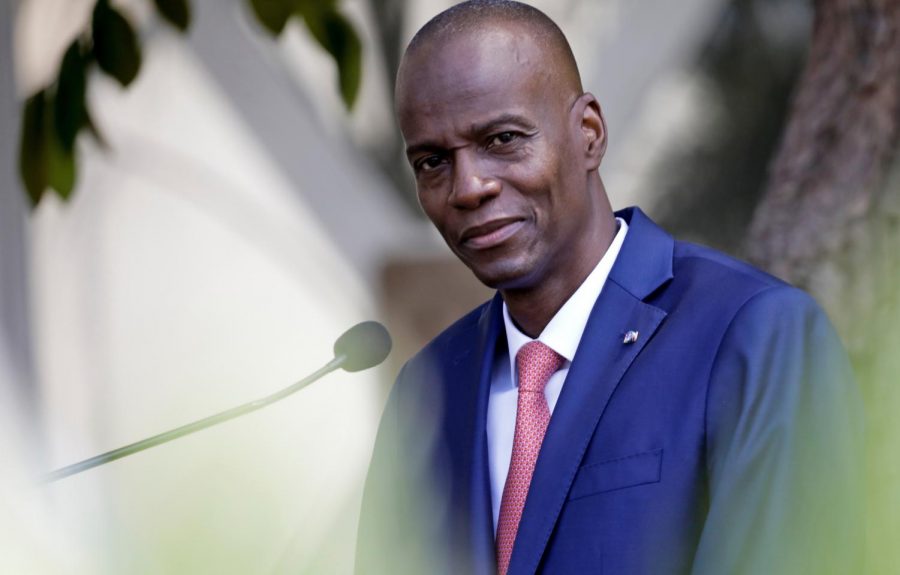Moise’s assassination adds to Haitian instability
Jovenel Moise, president of Haiti, who was assassinated earlier this month. His murderers are unknown at this time.
As reported by the Associated Press, former Haitian President Jovenel Moise was assassinated in his private residence on July 7, 2021. This killing is a brutal reminder of the political instability that continues to plague Haiti. Moise was shot dead in his home by a group of highly trained and heavily armed individuals containing ex-members of Colombian Special Forces, whose motives and backing are still unclear at this time.
However, the Miami based private security firm ‘CTU Security’ has come under investigation. Both the Haitian and United States’ government are looking into Miami for furnishing travel funds for the Colombians allegedly involved that allowed them to enter Haiti.
Moise’s administration had long been in an unstable position, due to wars between gangs that rival the Hatian government in violent capacity and political influence, allegations of corruption made against the Moise government’s ‘petrocaribe’ involvement, and the executive branch’s dissolution of parliament in 2015.
Alan Epstein, Special Instructor of Political Science at Oakland University, thoroughly understands the political tension that Moise’s administration experienced.
“He [Moise] was elected with a very small base of support, about 18 percent of the eligible electorate voted for him. Moise won with less than 600,000 votes, which was less than his predecessor, whose vote count was the lowest [in Haitian history] at the time. He wasn’t very popular to begin with, and became less so as he began to govern,” Epstein said. “What really tipped the balance [of Haitian political instability] was Venezuela’s ‘petrocaribe’ policy.”
Epstein went on to detail how Haiti entered into the ‘petrocaribe’ program for the purchase of Venezuelan oil. ‘Petrocaribe’ stipulated that oil could be purchased by members of the agreement with varying degrees of upfront payment, and a deferred payment program for the remaining balance of the purchase, allowing poorer nations such as Haiti to pay for their fuel purchases over time. Haiti’s citizens rely on fossil fuels such as Venezuelan oil for light and transportation, as demand for such cheap and readily available fuel is exacerbated by Haiti’s underdeveloped energy infrastructure.
“Under Moise, it was discovered in an audit that occurred a year after he took office, that two billion dollars was missing [from the Petrocaribe fuel purchase fund]. This amount represented about 25 percent of the Haitian economy, and the Haitian people were outraged,” Epstein said. “They didn’t blame President Moise for all of this, but he was connected to it because, they found that before he became president that he may have been involved in the misappropriation of these [fuel purchase] funds. Moise’s administration did not do very much to figure out what was going on, to fix it, and get to the bottom of it.”
On top of this political chaos, the people of Haiti endure raging gang wars that have further engulfed the nation following the fracture of the national government. While organized crime in Haiti has been a recurring aspect of Haitian life, these criminal organizations have pounced at the opportunity to grab power in absence of a unified national government to direct the nation’s security forces.
“Most of the country today is under the control of gangs. They are heavily armed, they can outgun the Haitian military and police, and they control the ports and roads, which allows them to block and control food and other necessities coming into areas. This hurts people’s standards of living and the economy. It’s a mess,” Epstein asserted. “Haiti is a very lawless place, but the people believe in the law. They believe in the constitution, once violated they are very upset because they look at this [the constitution] as something that should really protect them, even though oftentimes it doesn’t, but they want it to.”








